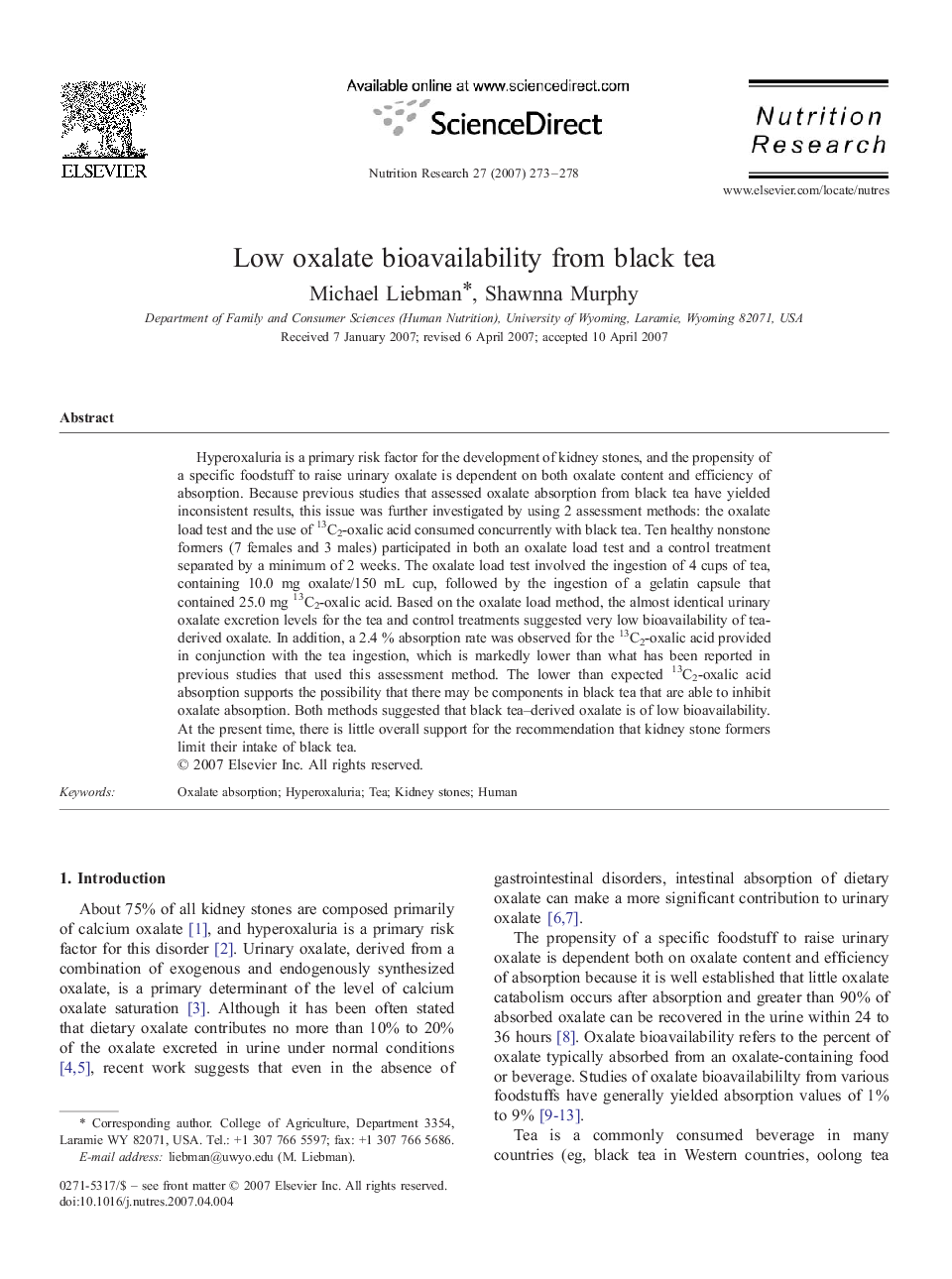| Article ID | Journal | Published Year | Pages | File Type |
|---|---|---|---|---|
| 2809997 | Nutrition Research | 2007 | 6 Pages |
Hyperoxaluria is a primary risk factor for the development of kidney stones, and the propensity of a specific foodstuff to raise urinary oxalate is dependent on both oxalate content and efficiency of absorption. Because previous studies that assessed oxalate absorption from black tea have yielded inconsistent results, this issue was further investigated by using 2 assessment methods: the oxalate load test and the use of 13C2-oxalic acid consumed concurrently with black tea. Ten healthy nonstone formers (7 females and 3 males) participated in both an oxalate load test and a control treatment separated by a minimum of 2 weeks. The oxalate load test involved the ingestion of 4 cups of tea, containing 10.0 mg oxalate/150 mL cup, followed by the ingestion of a gelatin capsule that contained 25.0 mg 13C2-oxalic acid. Based on the oxalate load method, the almost identical urinary oxalate excretion levels for the tea and control treatments suggested very low bioavailability of tea-derived oxalate. In addition, a 2.4 % absorption rate was observed for the 13C2-oxalic acid provided in conjunction with the tea ingestion, which is markedly lower than what has been reported in previous studies that used this assessment method. The lower than expected 13C2-oxalic acid absorption supports the possibility that there may be components in black tea that are able to inhibit oxalate absorption. Both methods suggested that black tea–derived oxalate is of low bioavailability. At the present time, there is little overall support for the recommendation that kidney stone formers limit their intake of black tea.
